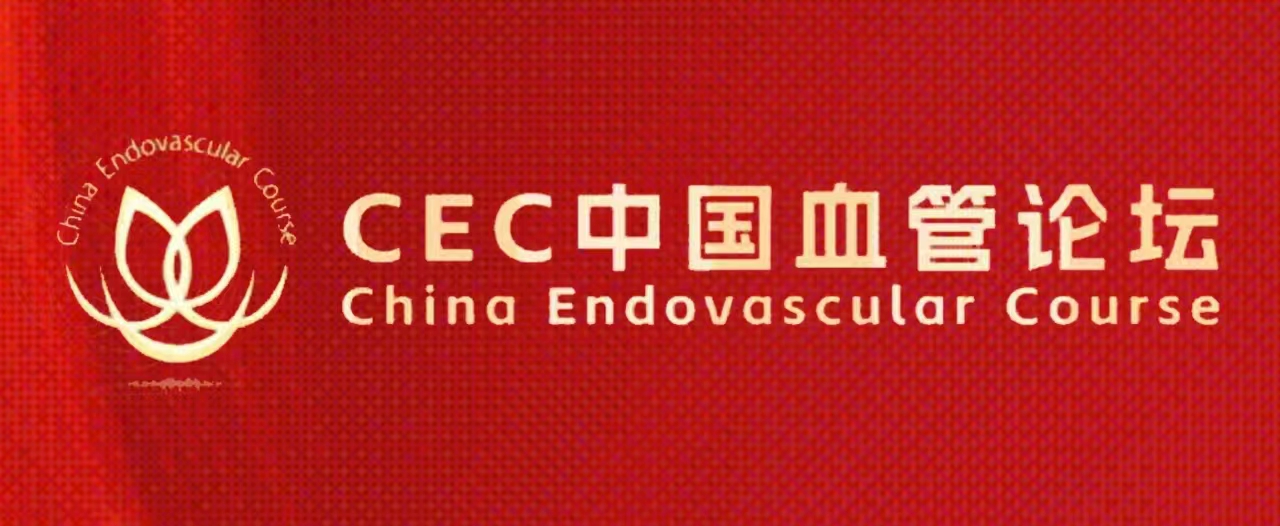
“CEC-15周年特别纪念版”学术论坛暨海峡两岸医药卫生交流协会血管外科分会2023年学术年会,美国加州大学圣地亚哥分校医学中心的Mahmoud Malas教授与各位专家同道分享讨论了《重度颈动脉狭窄的最新治疗:TCAR vs. CEA》,欢迎观看。

[VEITH@CEC]国际专场
演讲题目:
《重度颈动脉狭窄的最新治疗:
TCAR vs. CEA》
演讲嘉宾:
Mahmoud Malas 教授
单位:
美国加州大学圣地亚哥分校医学中心
在美国和加拿大,卒中位列主要死亡原因的第五位,是致残的主要原因。5%-10%的卒中患者患有颈动脉狭窄,医疗成本达到460亿美元[1]。在中国,卒中的患病率约2.6%,死亡率为343.4/100000人年,颈动脉狭窄患者的卒中发生率为505.2/100000人年,30-79岁人群中颈动脉狭窄的患病率约为27.2%。
三种术式介绍
operation _
1. CEA
1) 补片技术与传统CEA相比,可以降低术后2年的再狭窄发生率(HR 0.35, 95% CI 0.16–0.74, P=.006),但在术后远期卒中发生率和死亡率方面没有统计学差异[2]。

2) 外翻式颈动脉内膜剥脱术(Eversion Carotid Endarterectomy,eCEA)与补片技术相比,术后1年的再狭窄发生率、卒中或死亡发生率相似;eCEA与传统颈动脉内膜剥脱术相比,术后30天和术后1年的卒中或死亡发生率更低(OR:0.72,p=.02; OR:0.75, p=.03)[3]。


2. CAS
1) 颈动脉狭窄导致的卒中,病理生理机制是栓塞;CEA不仅可以恢复血流,而且消除了栓子的来源
2) CAS一般用于伴有严重合并症或解剖复杂的患者
3) 与CEA相比,CAS术后卒中或死亡的发生率较高
4) 复杂的主动脉弓,CAS可能无法实施
5) 远端栓塞保护装置一定程度上可以减少卒中
6)对于再狭窄病变,CAS可能是更好的选择[4,5]
7) CAS的花费相对更多
3.TCAR
1) 传统的经股动脉颈动脉支架置入术(transfemoral carotid artery stenting, TFCAS),可能在下面3个地方导致栓子形成或脱落:导管经过主动脉弓时、操作系统通过狭窄病变时以及微栓塞

2) 经颈动脉CAS联合血流逆转系统(Transcarotid Artery Revascularization, TCAR)避免通过主动脉弓、可以避免微栓塞、减少创伤、安全高效


3) TCAR术中应注意ACT>300s、预防心动过缓、收缩压大于160mmHg、手术器材需准备齐全[6]
4) TCAR的平均手术时长比CEA明显缩短

5) TCAR术中血流逆转的时间明显小于CEA术中颈动脉阻断的时间

6) TCAR术后并发症发生率较低

7) TCAR可以明显改善远端微栓塞的风险

8) DW-MRI结果提示,TCAR术后脑损伤发生率与CEA相近并明显低于CAS

9) 在术后卒中或死亡发生率方面,TCAR明显低于CAS[7,8]


10) ROADSTER研究报道,TCAR术后1年卒中发生率约为0.6%、死亡率约为4.2%[9]。在一项系统综述中提到,TCAR术后1年卒中或死亡的发生率与CEA、CAS之间的差异均无统计学意义[10]


11) TCAR术后3年的死亡率高于CEA,尤其对于有症状的颈动脉狭窄患者[11]


12) 对于CEA术后再狭窄的病变,TCAR围术期并发症发生率低于CEA和CAS,尤其对于无症状颈动脉狭窄的病变[12]



13) 对于长段病变,TCAR更为安全[13]
14) 对于对侧颈动脉闭塞的病变,TCAR比CEA和CAS均更为安全[14]

15) TCAR减少术后卒中及死亡的发生率的主要机制是血流逆转系统[15]

小结
brief summary _
CEA仍然是金标准
经股动脉CAS围术期的卒中和死亡的发生率较高
TCAR的安全性和有效性并肩CEA,优于TFCAS
对于标准风险的患者,TCAR的安全性和有效性也与CEA相当
需要随机对照研究比较TCAR和CEA
点击观看视频
专家介绍
Expert introduction _

Mahmoud Malas教授
加州大学圣地亚哥分校医学中心
血管内外科主任
加州大学圣地亚哥医学院教授
临床研究外科副主席
作为领导人,拥有30多项临床试验经验,并致力于追求血管和血管内手术的技术进步
专业特长:擅长传统开放手术和微创血管介入治疗,包括胸主动脉瘤、腹主动脉瘤、颈动脉、外周动脉、静脉疾病和血液透析。
向上滑动阅览
参考文献
Virani SS, Alonso A, Benjamin EJ, et al. Heart Disease and Stroke Statistics-2020 Update: A Report From the American Heart Association. Circulation. 2020;141(9):e139-e596. doi:10.1161/CIR.0000000000000757
Malas M, Glebova NO, Hughes SE, et al. Effect of patching on reducing restenosis in the carotid revascularization endarterectomy versus stenting trial. Stroke. 2015;46(3):757-761. doi:10.1161/STROKEAHA.114.007634
Dakour-Aridi H, Ou M, Locham S, AbuRahma A, Schneider JR, Malas M. Outcomes following Eversion versus Conventional Endarterectomy in the Vascular Quality Initiative Database. Ann Vasc Surg. 2020;65:1-9. doi:10.1016/j.avsg.2019.07.021
Arhuidese I, Obeid T, Nejim B, Locham S, Hicks CW, Malas MB. Stenting versus endarterectomy after prior ipsilateral carotid endarterectomy. J Vasc Surg. 2017;65(1):1-11. doi:10.1016/j.jvs.2016.07.115
Arhuidese IJ, Nejim B, Chavali S, et al. Endarterectomy versus stenting in patients with prior ipsilateral carotid artery stenting. J Vasc Surg. 2017;65(5):1418-1428. doi:10.1016/j.jvs.2016.11.041
Malas MB, Leal J, Kashyap V, Cambria RP, Kwolek CJ, Criado E. Technical aspects of transcarotid artery revascularization using the ENROUTE transcarotid neuroprotection and stent system. J Vasc Surg. 2017;65(3):916-920. doi:10.1016/j.jvs.2016.11.042
Malas MB, Dakour-Aridi H, Wang GJ, et al. Transcarotid artery revascularization versus transfemoral carotid artery stenting in the Society for Vascular Surgery Vascular Quality Initiative. J Vasc Surg. 2019;69(1):92-103.e2. doi:10.1016/j.jvs.2018.05.011
Schermerhorn ML, Liang P, Eldrup-Jorgensen J, et al. Association of Transcarotid Artery Revascularization vs Transfemoral Carotid Artery Stenting With Stroke or Death Among Patients With Carotid Artery Stenosis. JAMA. 2019;322(23):2313-2322. doi:10.1001/jama.2019.18441
Malas MB, Leal Lorenzo JI, Nejim B, et al. Analysis of the ROADSTER pivotal and extended-access cohorts shows excellent 1-year durability of transcarotid stenting with dynamic flow reversal. J Vasc Surg. 2019;69(6):1786-1796. doi:10.1016/j.jvs.2018.08.179
Malas MB, Elsayed N, Naazie I, Dakour-Aridi H, Yei KS, Schermerhorn ML. Propensity score-matched analysis of 1-year outcomes of transcarotid revascularization with dynamic flow reversal, carotid endarterectomy, and transfemoral carotid artery stenting. J Vasc Surg. 2022;75(1):213-222.e1. doi:10.1016/j.jvs.2021.07.242
Zarrintan S, Elsayed N, Patel RJ, Clary B, Goodney PP, Malas MB. Propensity-Score Matched Analysis of Three Years Survival of Trans Carotid Artery Revascularization Versus Carotid Endarterectomy in the Vascular Quality Initiative Medicare-Linked Database. Ann Surg. 2023;278(4):559-567. doi:10.1097/SLA.0000000000006009
Elsayed N, Ramakrishnan G, Naazie I, Sheth S, Malas MB. Outcomes of Carotid Revascularization in the Treatment of Restenosis After Prior Carotid Endarterectomy. Stroke. 2021;52(10):3199-3208. doi:10.1161/STROKEAHA.120.033667
Elsayed N, Khan MA, Moacdieh MP, Gaffey AC, Abou-Zamzam A, Malas MB. Carotid lesion length independently predicts stroke and death after transcarotid artery revascularization and transfemoral carotid artery stenting. J Vasc Surg. 2022;76(6):1615-1623.e2. doi:10.1016/j.jvs.2022.06.099
Dakour-Aridi H, Elsayed N, Malas M. Outcomes of Carotid Revascularization in Patients with Contralateral Carotid Artery Occlusion. J Am Coll Surg. 2021;232(5):699-708.e1. doi:10.1016/j.jamcollsurg.2020.12.063
Naazie IN, Magee GA, Mathlouthi A, Elsayed N, Dakour-Aridi H, Malas MB. Primary mechanism of stroke reduction in transcarotid artery revascularization is dynamic flow reversal. J Vasc Surg. 2021;74(1):187-194. doi:10.1016/j.jvs.2020.10.082
Cui C, Ramakrishnan G, Murphy J, Malas MB. Cost-effectiveness of transcarotid artery revascularization versus carotid endarterectomy. J Vasc Surg. 2021;74(6):1910-1918.e3. doi:10.1016/j.jvs.2021.05.051
END



欢迎把文章分享给更多朋友

